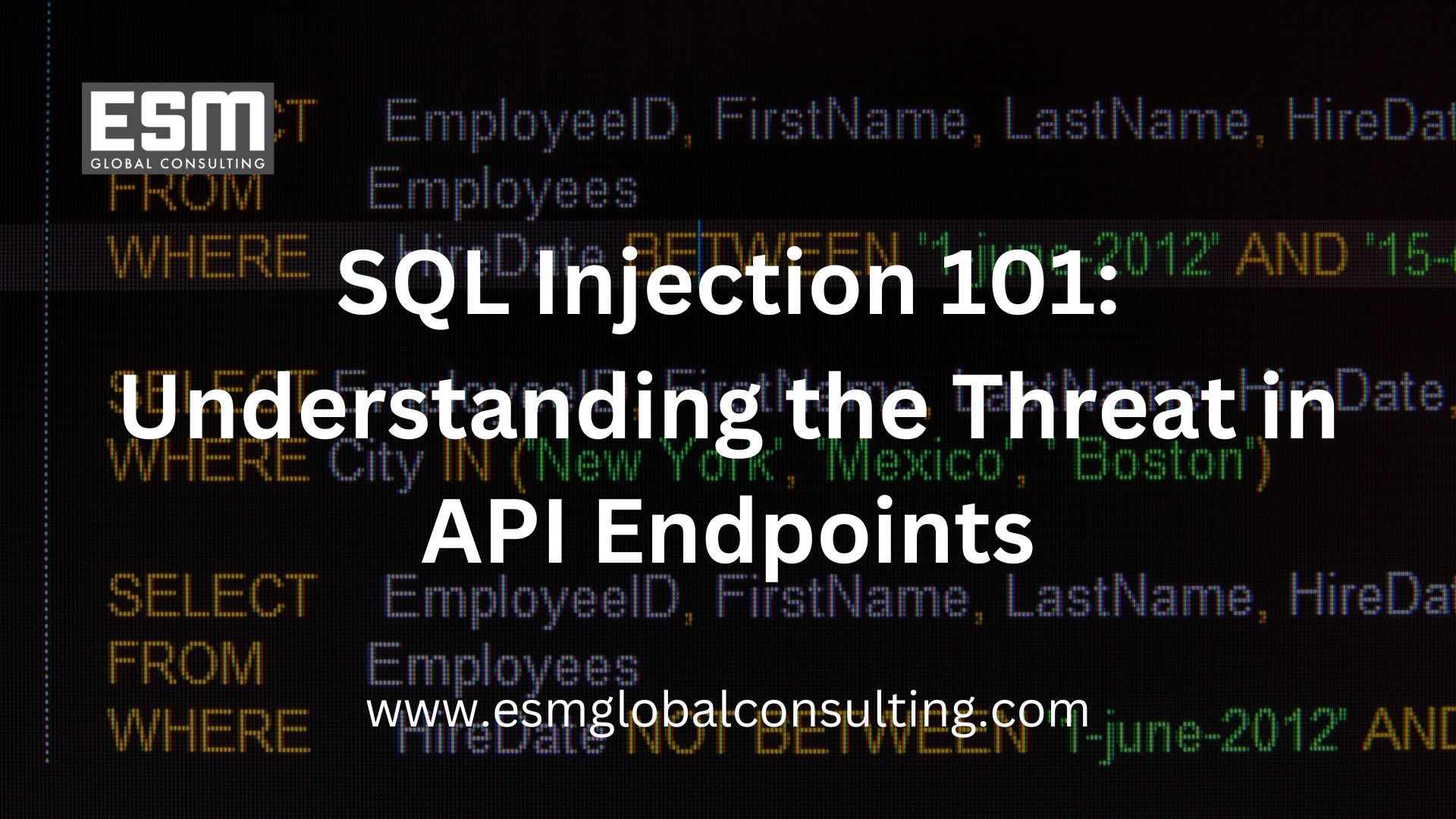SQL Injection 101: Understanding the Threat in API Endpoints
API endpoints are the backbone of modern applications, enabling seamless communication between clients and servers. However, with great utility comes significant risk. One of the most notorious vulnerabilities threatening API security is SQL injection (SQLi). This blog will break down what SQLi is, how it impacts APIs, and provide real-world examples to highlight the importance of securing your endpoints.
What is SQL Injection?
SQL injection is a code injection technique where attackers exploit vulnerabilities in an application’s code to manipulate its SQL database queries. It typically occurs when user inputs are not properly validated or sanitized, allowing malicious SQL statements to execute.
For example, consider a vulnerable API endpoint:
sql SELECT * FROM users WHERE username = 'user' AND password = 'pass';
An attacker can bypass authentication by injecting malicious input:
sql username = 'admin' --' password = ''
This results in the query:
sql SELECT * FROM users WHERE username = 'admin' --' AND password = '';
Here, the -- comment syntax effectively ignores the password check, granting unauthorized access.
How SQL Injection Impacts APIs
1. Data Breaches: Attackers can extract sensitive data like usernames, passwords, and financial details.
2. Unauthorized Access: SQLi can bypass authentication mechanisms, giving attackers full control over accounts.
3. Data Manipulation: Hackers can delete, modify, or insert malicious data into your database.
4. System Compromise: Exploiting SQLi may allow attackers to escalate privileges and execute remote commands.
5. Reputation Damage: Breaches often lead to customer mistrust and legal repercussions.
Real-World SQL Injection Breaches
1. Sony Pictures (2014)
In one of the most infamous cyberattacks, hackers exploited SQLi vulnerabilities to access Sony’s database. The attackers leaked sensitive employee information, unreleased films, and confidential emails.
Impact:
Massive reputational damage.
Loss of proprietary content worth millions.
2. LinkedIn (2012)
Attackers used SQL injection to steal hashed passwords from LinkedIn’s database. Over 6.5 million passwords were leaked online.
Impact:
Compromised user accounts.
Strengthened the call for better password hashing mechanisms.
3. British Airways (2018)
A vulnerability, potentially related to SQL injection, was exploited to steal personal and financial details of over 380,000 customers.
Impact:
The company faced a £20 million fine under GDPR regulations.
4. Drupalgeddon 2 (2018)
An SQL injection vulnerability in Drupal, a popular CMS, allowed attackers to execute arbitrary code on affected websites.
Impact:
Thousands of websites were compromised within hours of the vulnerability’s disclosure.
Why Are APIs Particularly Vulnerable?
Complex Queries: APIs often involve dynamic query generation, increasing the risk of poorly sanitized inputs.
Inadequate Validation: Developers may assume APIs are secure because they are less visible than web applications.
Excessive Trust: APIs frequently trust input from trusted sources, ignoring the possibility of malicious insiders or compromised applications.
Conclusion
SQL injection remains one of the most dangerous vulnerabilities in application development. APIs, as the gateways to critical data, are prime targets for such attacks. Understanding the threat is the first step in securing your applications. In our next post, we’ll explore practical strategies to protect your API endpoints from SQL injection.
Secure Your APIs with ESM Global Consulting
At ESM Global Consulting, we specialize in safeguarding your API endpoints with advanced cloud and database security solutions. From input validation to deploying Web Application Firewalls (WAFs), we’ve got you covered.
Contact us today to fortify your defenses against SQL injection and other threats!


